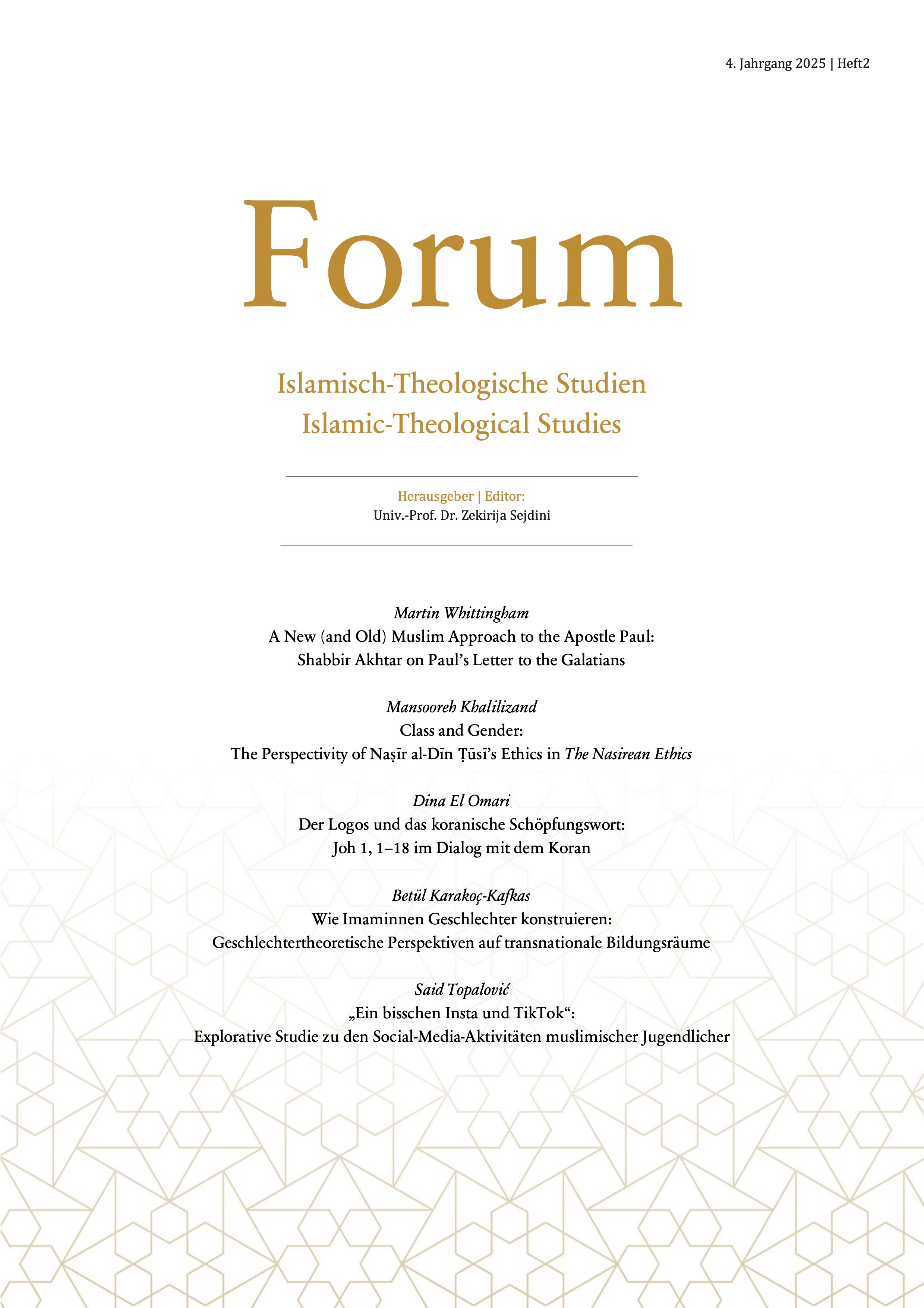Der Logos und das koranische Schöpfungswort
Joh 1, 1–18 im Dialog mit dem Koran
DOI:
https://doi.org/10.71573/2941-122X_2025_4-2_145Keywords:
Logos, Word of God, dialogical Quran exegesis, interreligious dialogue, interreligious hermeneuticsAbstract
The Johannine Prologue (John 1:1–18) is one of the most theologically significant texts of the New Testament, offering essential Christological statements about the divine nature of Christ and his relationship with God. The Logos, the divine creative word, plays a central role. Unlike the Synoptic Gospels, the Johannine Prologue does not begin with Jesus’ birth or baptism but presents a poetic-theological reflection on the origin and purpose of Christ. The text focuses on four key themes: the Logos, John the Baptist as a witness, the activity of the Logos in the world, and the incarnation of the Logos in Jesus Christ. These four aspects can also be found in modified form in the Qur'an, a comparison between these two texts reveals both surprising points of connection for interreligious dialogue and theological boundaries.
Downloads
Published
Issue
Section
License
Copyright (c) 2025 Dina El Omari (Author)

This work is licensed under a Creative Commons Attribution 4.0 International License.
FORUM is committed to Diamond Open Access. All articles and reviews are freely accessible from the date of publication, with no charges for authors (APCs) or readers. FORUM relies on the technical and financial support of the University of Innsbruck to ensure long-term accessibility.
All published content is licensed under a Creative Commons Attribution 4.0 International License (CC BY 4.0). This allows anyone to share and adapt the material for any purpose, provided proper credit is given. Authors retain full and permanent ownership of their work while granting FORUM a non-exclusive, perpetual right to publish and distribute it.
Authors are responsible for securing rights for any images, illustrations, or figures included in their work. They are encouraged to share their published articles in institutional repositories or personal websites to maximize visibility. Additionally, authors may enter into separate agreements for non-exclusive distribution, provided the original publication in FORUM is acknowledged.
FORUM does not charge reprint fees, and no additional permission is required for republication, as authors retain copyright.


